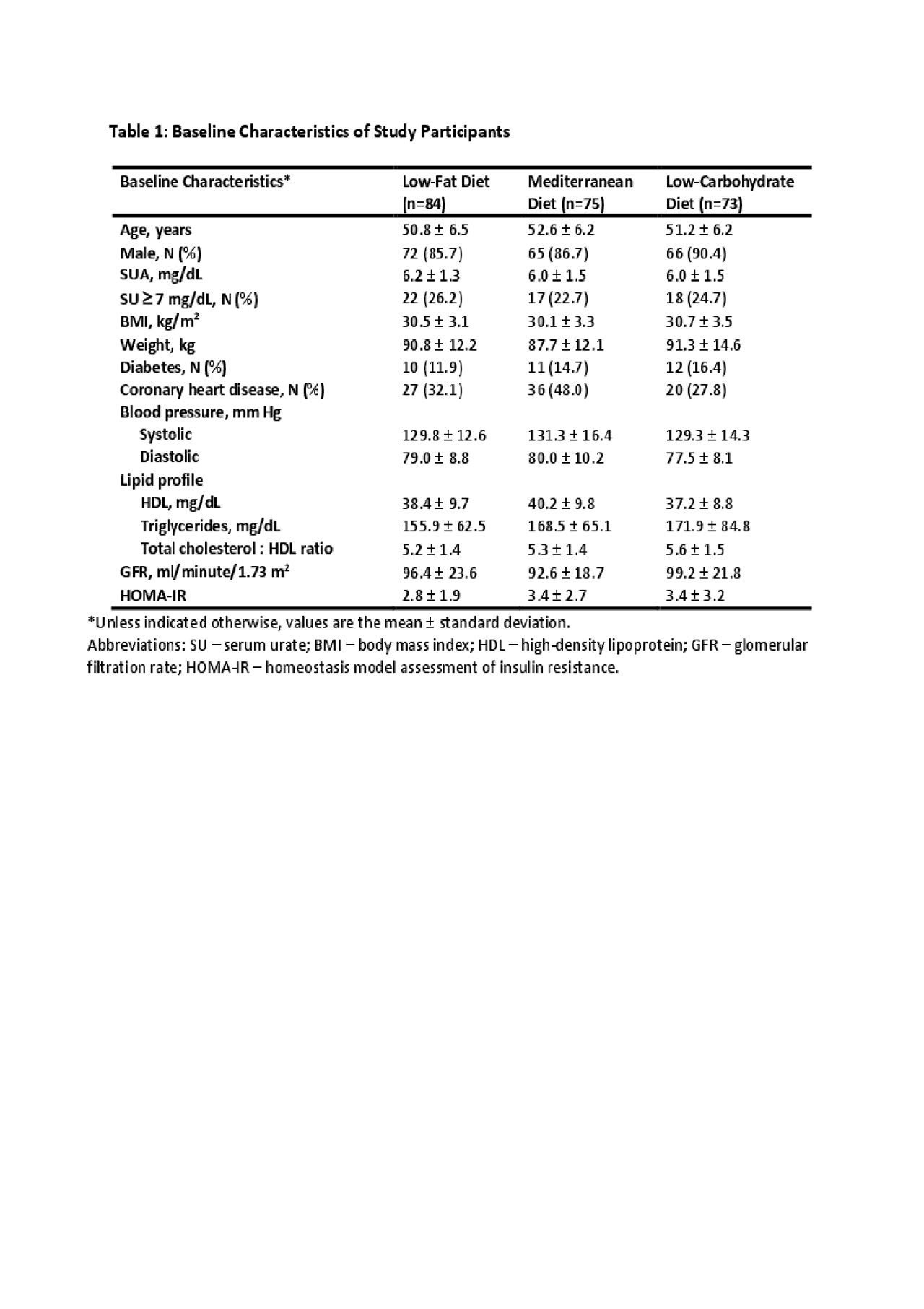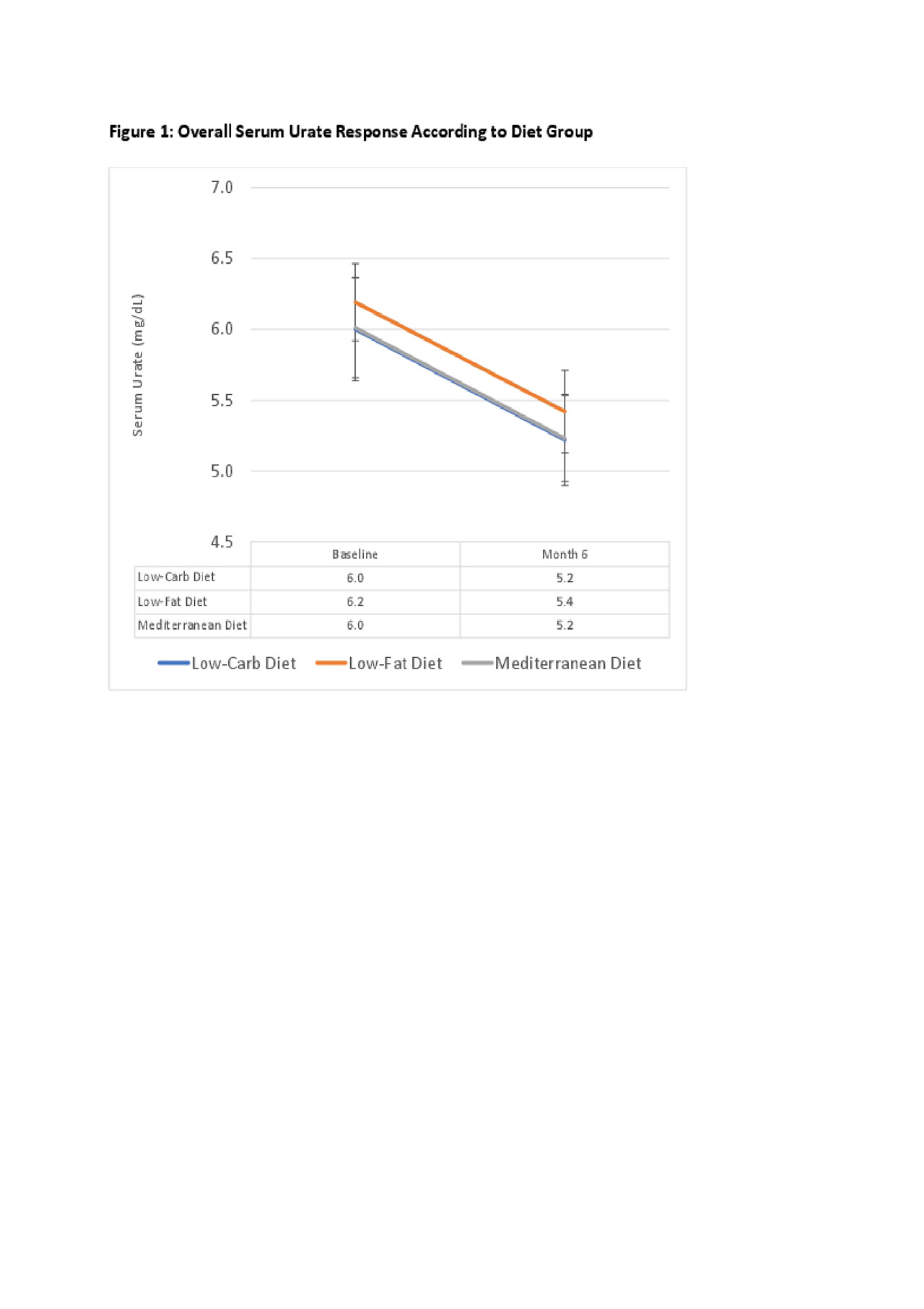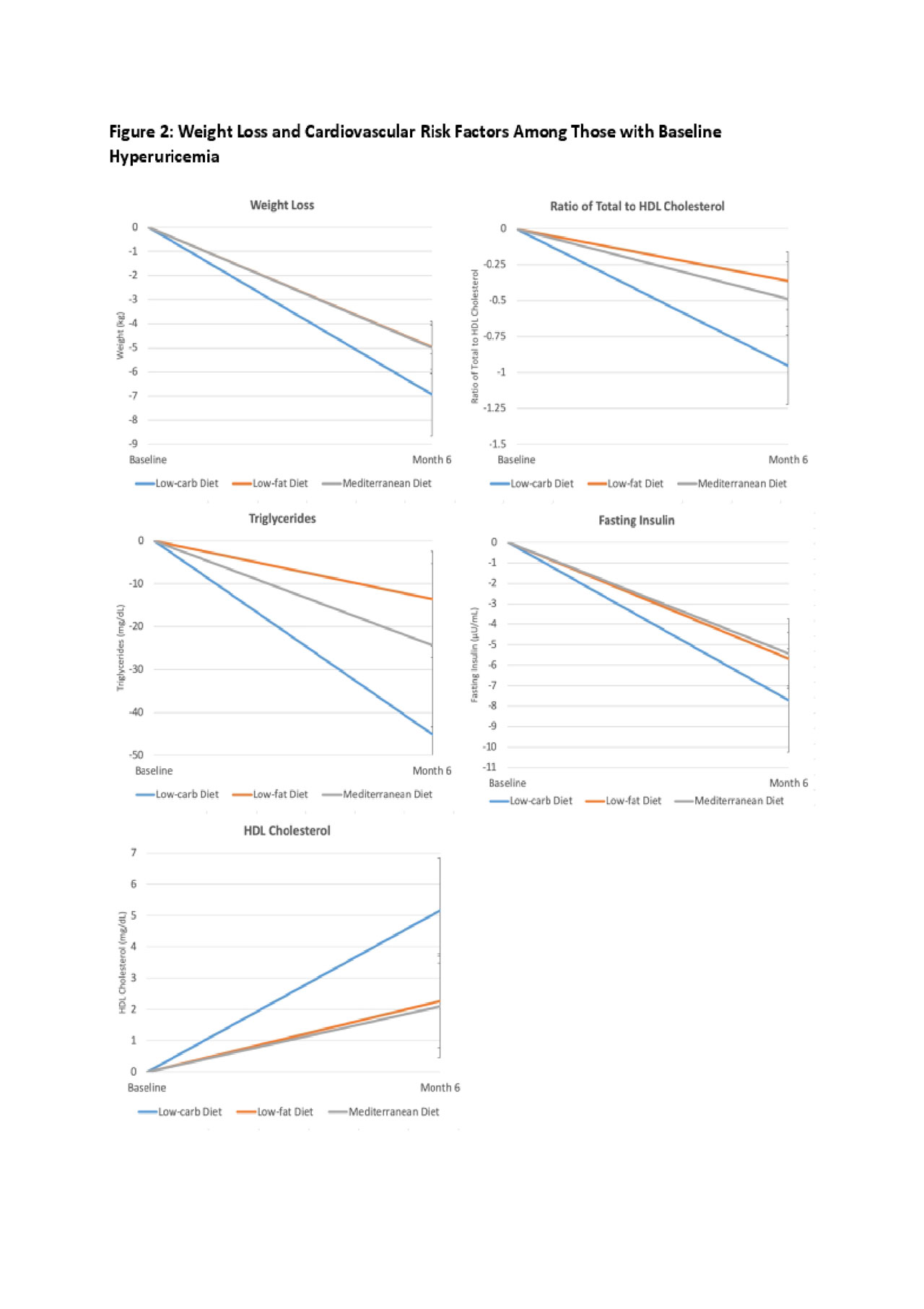Session Information
Date: Sunday, November 10, 2019
Title: 3S102: Metabolic & Crystal Arthropathies I: Clinical (898–902)
Session Type: ACR Abstract Session
Session Time: 4:30PM-6:00PM
Background/Purpose: Gout and hyperuricemia are associated with cardiometabolic comorbidities and increased risk of premature mortality. Often, low-purine (i.e., low-protein) diets are recommended for patients with gout, based on epidemiologic studies linking purine intake and risk of incident gout and gout flares. However, such a diet could potentially lead to higher intake of foods rich in refined carbohydrates and trans fat, which could worsen the cardiometabolic comorbidities of gout. Conversely, diets that promote weight loss, such as Mediterranean and low-carbohydrate diets, could improve cardiovascular risk factors and may also reduce serum urate (SU) by improving insulin resistance, thereby enhancing urate excretion. However, clinical trial data on the effect of dietary interventions on SU are scarce. Thus, the objective of this study was to determine the effects of three established weight loss diets (i. low-fat restricted calorie; ii. Mediterranean restricted calorie; iii. low-carbohydrate non-restricted calorie) on SU levels by conducting a post-hoc analysis of the Dietary Intervention Randomized Controlled Trial (DIRECT) study.
Methods: The DIRECT study included men and women age 40-65 with a body mass index (BMI) of at least 27 kg/m2 or a diagnosis of either type 2 diabetes or coronary heart disease (regardless of BMI). Participants were randomly assigned to one of three weight loss diets: i. low-fat restricted calorie; ii. Mediterranean restricted calorie; iii. low-carbohydrate non-restricted calorie. We measured SU levels at baseline and 6 months using stored samples from the study from 232 trial participants. The primary outcome of this ancillary analysis was the change in SU from baseline among the three diet groups.
Results: Baseline characteristics were well-balanced between the three groups (Table 1). All three diets significantly reduced SU levels by 0.8 mg/dL each over 6 months (all p for within-group comparison < 0.001 and p >0.98 for between-group comparisons) (Figure 1). This urate-lowering effect was most pronounced among those with baseline hyperuricemia (i.e., SU 7mg/dL). The mean SU decrease was 1.9 mg/dL for the low-fat group, 2.0 mg/dL for the Mediterranean group, and 2.5 mg/dL for the low-carbohydrate group. The relative reduction in the ratio of total cholesterol to high-density lipoprotein cholesterol was 16.9% in the low-carbohydrate group and 7.0% in the low-fat group (p=0.01). BMI, blood pressure, cholesterol profile, triglycerides, and insulin levels also improved significantly in all three groups (Figure 2), with more prominent improvement in the low-carbohydrate group, particularly lipid profiles.
Conclusion: Low-fat restricted calorie, Mediterranean restricted calorie, and low-carbohydrate non-restricted calorie diets can all lower SU levels, although the effect size is smaller than that of a typical urate-lowering drug. Cardiovascular risk factors improved consistently across all three diets, whereas it remains unclear whether urate-lowering drugs have similar benefits. Thus, dietary interventions aimed at weight loss could be a useful adjunctive tool to modestly lower SU levels and improve the cardiovascular risk factors associated with hyperuricemia.

ACR 2019 DIRECT abstract Table 1

ACR 2019 DIRECT abstract Figure 1

ACR 2019 DIRECT abstract Figure 2
To cite this abstract in AMA style:
Yokose C, Rai S, Lu N, McCormick N, Curhan G, Choi H. The Effects of a Low-Fat, Mediterranean, or Low-Carbohydrate Diet on Serum Urate [abstract]. Arthritis Rheumatol. 2019; 71 (suppl 10). https://acrabstracts.org/abstract/the-effects-of-a-low-fat-mediterranean-or-low-carbohydrate-diet-on-serum-urate/. Accessed .« Back to 2019 ACR/ARP Annual Meeting
ACR Meeting Abstracts - https://acrabstracts.org/abstract/the-effects-of-a-low-fat-mediterranean-or-low-carbohydrate-diet-on-serum-urate/
